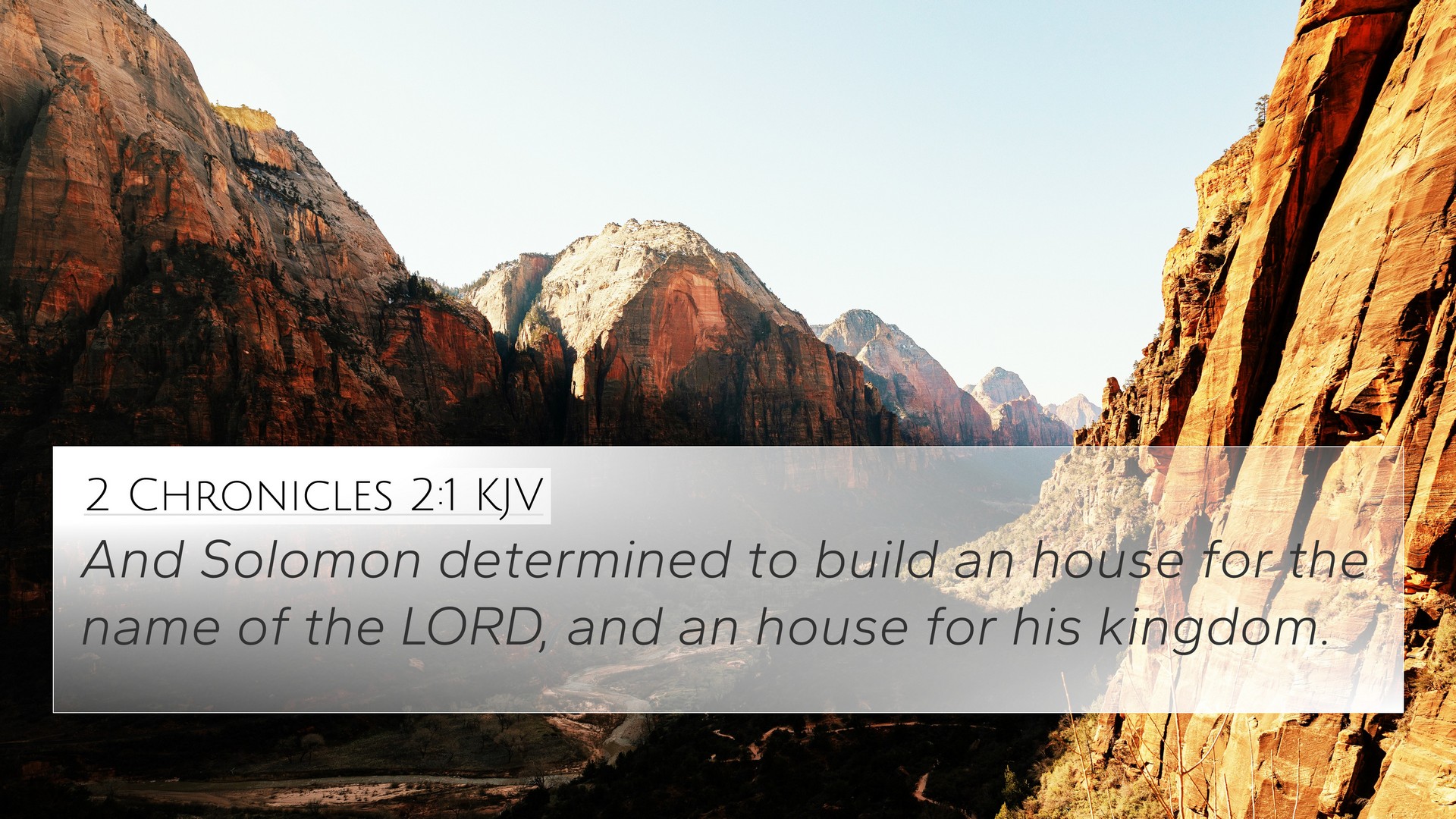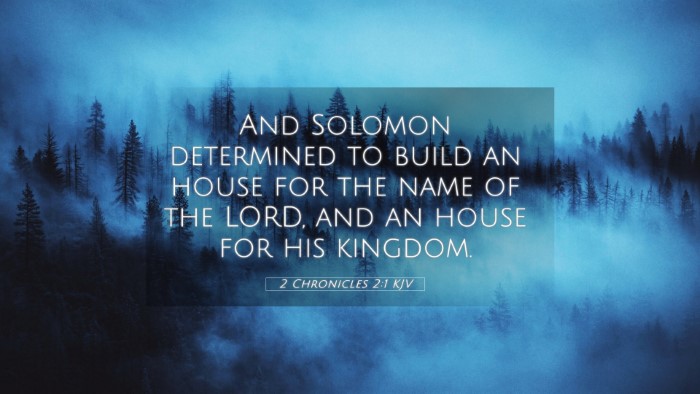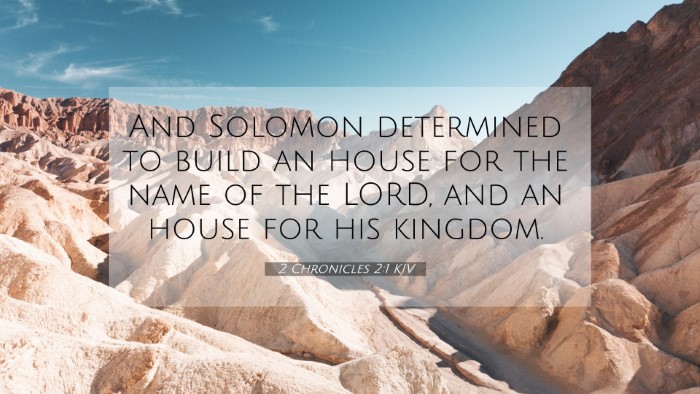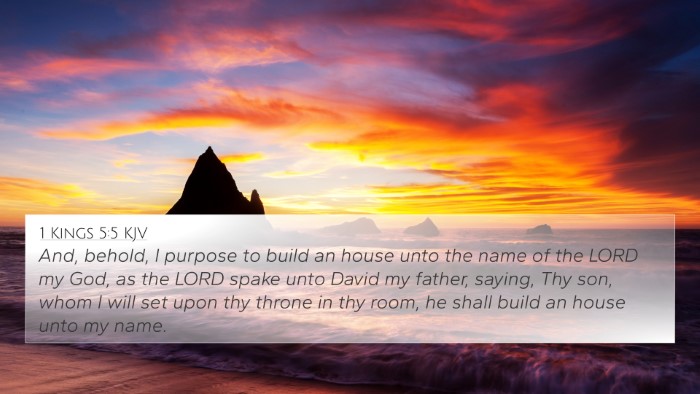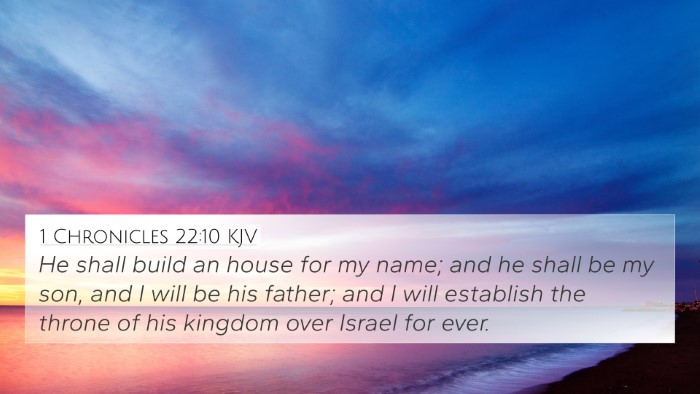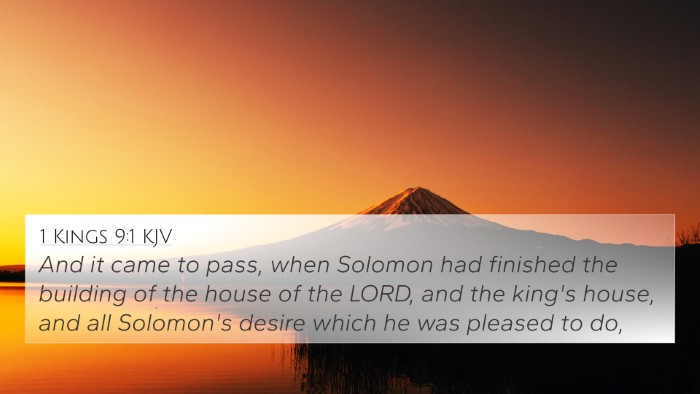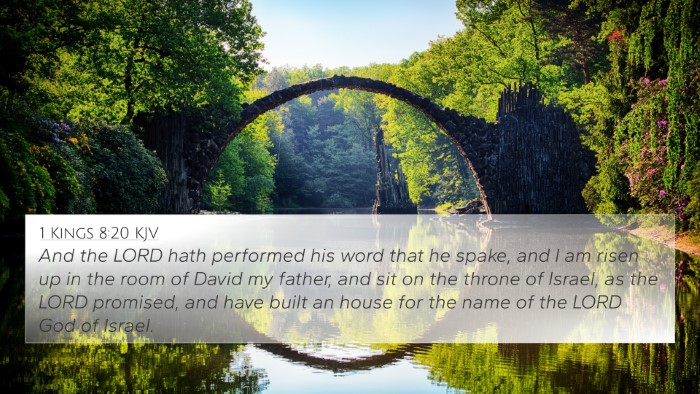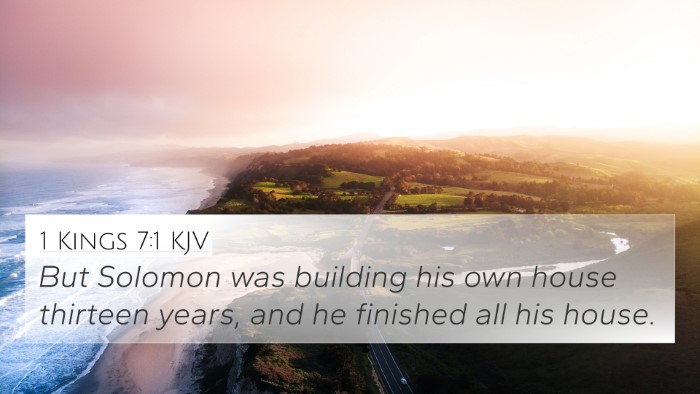Understanding 2 Chronicles 2:1
2 Chronicles 2:1 states: "And Solomon determined to build a house for the name of the LORD, and a house for his kingdom." This verse marks a significant moment in biblical history, as it highlights King Solomon's intention to construct the Temple in Jerusalem, a sacred place dedicated to the worship of God. The construction of the Temple is pivotal in the narrative of the Israelites, as it signifies a permanent dwelling place for the Lord among His people.
Summary of 2 Chronicles 2:1
The verse encapsulates Solomon's resolve and commitment to honor God. It emphasizes two key aspects:
-
The House for the Name of the LORD: This refers to the Temple, which represents God's presence among the Israelites. It is significant as a central place of worship.
-
A House for His Kingdom: This implies a physical and spiritual realm where God's sovereignty is recognized and established.
Commentary Insights
Insight from various public domain commentaries on this verse reveals a myriad of interpretations and meanings that deepen our understanding:
Matthew Henry's Commentary
Matthew Henry emphasizes the importance of Solomon's intention, noting that it reflects the heart of a leader who desires to glorify God. He points out that Solomon's decision signifies a transition from a temporary dwelling (the Tabernacle) to a permanent structure, which embodies the stability of God’s presence among His people.
Albert Barnes' Notes on the Bible
Albert Barnes discusses the implications of building a house for God. He highlights how this act signifies a formal acknowledgment of God’s sovereignty and the communal identity of the Israelites. Barnes connects this event to the broader theme of covenant relationship between God and His people.
Adam Clarke's Commentary
Adam Clarke offers insights on the preparations that Solomon undertook in anticipation of building the Temple. Clarke elaborates on the materials gathered, the architectural plans, and the symbolic nature of dedicating the Temple to God’s name, suggesting that it serves as a representative of divine glory on earth.
Cross-References Related to 2 Chronicles 2:1
To understand this verse in a broader biblical context, various cross-references can be examined:
-
1 Kings 6:1: This verse parallels the building of the Temple, confirming Solomon’s undertaking and detailing the timeline related to the construction.
-
2 Samuel 7:12-13: God's promise to David about his son building a house for Him relates directly to Solomon's intentions.
-
Psalms 132:13-14: Reflects on the significance of Zion as a dwelling place for God, connecting to Solomon's dedication of the Temple.
-
Isaiah 56:7: Indicates God’s house as a place of prayer for all nations, relating to the inclusivity of the Temple.
-
John 2:19-21: Jesus refers to His body as the Temple, linking the physical structure built by Solomon to His own sacrificial role.
-
Hebrews 9:11-12: Discusses Christ as the high priest who enters the heavenly temple, demonstrating the ultimate purpose of the physical Temple.
-
Acts 7:47-50: Stephen discusses how God does not dwell in temples made by hands, drawing a distinction between the Old Testament Temple and the presence of God in Christ.
Thematic Connections
Thematic connections can be observed between 2 Chronicles 2:1 and various other scriptures that illuminate the principles of worship, obedience, covenant, and leadership:
-
Worship and Reverence: 1 Chronicles 16:29 emphasizes giving to the Lord the glory due His name, aligning with Solomon's intent.
-
Leadership and Responsibility: Proverbs 29:2 speaks to the role of the righteous in authority, conveying how Solomon's actions reflect godly governance.
-
The Covenant Faithfulness of God: Deuteronomy 12:5-7 discusses the importance of choosing a place for God’s name to dwell, underpinning Solomon's actions.
Conclusion
2 Chronicles 2:1 serves as a pivotal point in understanding the narrative of the Old Testament and God’s relationship with His people. Solomon’s determination to build a house for the Lord signifies not only a physical construction project but a deep spiritual commitment that invites reflection on worship, leadership, and divine presence. Through cross-referencing this verse with others, a rich tapestry of biblical themes emerges that highlight the comprehensive nature of God's plan for His people.
Tools for Cross-Referencing
Engaging in a cross-referencing Bible study presents an excellent opportunity to deepen one’s understanding of scripture. Here are some tools and methods to enhance your study:
- Bible Concordance: A valuable resource for finding specific terms and their occurrences throughout the Bible.
- Bible Cross-Reference Guide: A structured approach to seeing how various verses are interlinked.
- How to Use Bible Cross-References: Learning to navigate through the Bible’s references enhances thematic studies and sermon preparations.
- Bible Chain References: This method allows you to link themes and topics across different books and verses within the scripture.
